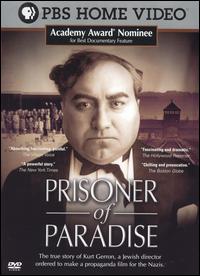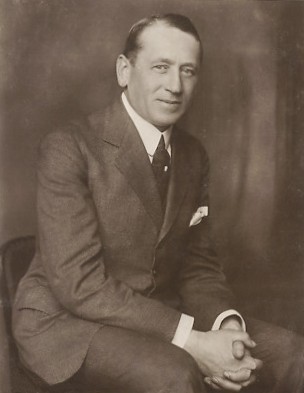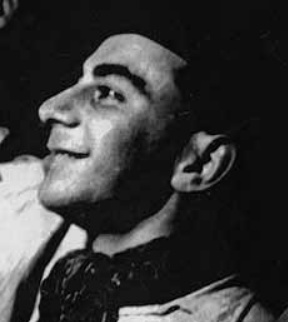
Camp Westerbork, also known as Westerbork transit camp, was a Nazi transit camp in the province of Drenthe in the Northeastern Netherlands, during World War II. It was located in the municipality of Westerbork, current-day Midden-Drenthe. Camp Westerbork was used as a staging location for sending Jews, Sinti and Roma to concentration camps elsewhere.

Theresienstadt Ghetto was established by the SS during World War II in the fortress town of Terezín, in the Protectorate of Bohemia and Moravia. Theresienstadt served as a waystation to the extermination camps. Its conditions were deliberately engineered to hasten the death of its prisoners, and the ghetto also served a propaganda role. Unlike other ghettos, the exploitation of forced labor was not economically significant.

Rafael Schächter, was a Czechoslovak composer, pianist and conductor of Jewish origin, organizer of cultural life in Terezín concentration camp.

Theresienstadt. Ein Dokumentarfilm aus dem jüdischen Siedlungsgebiet, unofficially Der Führer schenkt den Juden eine Stadt, was a black-and-white projected Nazi propaganda film. It was directed by the German Jewish prisoner Kurt Gerron and the Czech filmmaker Karel Pečený under close SS supervision in the Theresienstadt concentration camp, and edited by Pečený's company, Aktualita. Filmed mostly in the autumn of 1944, it was completed on 28 March 1945 and screened privately four times. After the war, the film was lost but about twenty minutes of footage was later rediscovered in various archives.

Peter Kien was a Jewish artist and poet. He was active at the Theresienstadt concentration camp.
Max Michaelis Ehrlich was a German Jewish actor, screenwriter, and director on the German theater, comedy and cabaret scene of the 1930s.

Prisoner of Paradise is a 2002 documentary film directed by Malcolm Clarke and Stuart Sender. The film is an international co-production of Canada, the United States, and the United Kingdom, and tells the true story of Kurt Gerron, a German-Jewish cabaret and film actor and director in the 1920s and 1930s who was deported to the Theresienstadt concentration camp in Czechoslovakia during World War II. There, Gerron was ordered to write and direct a Nazi propaganda film, Theresienstadt. Ein Dokumentarfilm aus dem jüdischen Siedlungsgebiet, before being deported to Auschwitz concentration camp, where he and his wife Olga were murdered on 30 October 1944.
Voices of the Children is a 1999 Emmy-Award winning documentary film written and directed by Zuzana Justman. It tells the story of three people who were imprisoned as children in the Terezin concentration camp. It was produced and shown on television in the United States.
Lisl Frank was a Czech Jewish singer, dancer and actress. She achieved success before World War II.
Spuren nach Theresienstadt / Tracks to Terezín is a 2007 film with Herbert Thomas Mandl, a survivor of the Holocaust.

Fritz Weiss was a Czech jazz musician and arranger, active in the first half of the 20th century. He was an organizer of jazz performances and an important participant in the musical life of the Theresienstadt concentration camp. Weiss was murdered in the Holocaust.

Karl Rahm was a Sturmbannführer (major) in the German Schutzstaffel who, from February 1944 to May 1945, served as the commandant of the Theresienstadt concentration camp. Rahm was the third and final commander of the camp, succeeding Siegfried Seidl and Anton Burger. He was hanged for war crimes.
Martin Roman was a German Jewish jazz pianist and Holocaust survivor.

The Ghetto Swingers were a jazz band organised in the Nazi concentration camp Theresienstadt.
Hans Günther was an SS-Sturmbannführer who was the head of the "Central Office for Jewish Emigration in Prague" during World War II. He was in charge of the deportation of Czech Jews to death camps during the Holocaust. He was killed by Czech partisans in 1945.

Roy Kift is an English actor and playwright who is resident in Germany. He is best known for his 1980 play Stronger than Superman.

Eugen Burg was a German actor. His daughter was Hansi Burg. Burg was a close friend of the actor Hans Albers.

Alfréd Meissner was a Czechoslovak politician and member of the Social Democratic Party in the First Czechoslovak Republic. He was elected to the National Assembly and served twice as Minister of Justice and twice as Minister of Social Welfare of the republic. Following the German occupation of Czechoslovakia during the Second World War, he was deported to the Theresienstadt concentration camp. He survived the Holocaust, and after the war he returned to Prague where he died at the age of 79.

Karel Švenk, sometimes referred to in German as Karl Schwenk, was a Czech cabaret artist, comedian, songwriter and writer. A leading figure in the cabaret at the Theresienstadt Ghetto, Švenk was eventually sent to Auschwitz and later to Meuselwitz. He died on a death march from Kraslice about two weeks before the end of the war. Being completely exhausted and unable to continue, his friend hid him in the straw in the barn where the prisoners spent the night. It is unknown whether he died of exhaustion or was discovered by the SS and shot.














